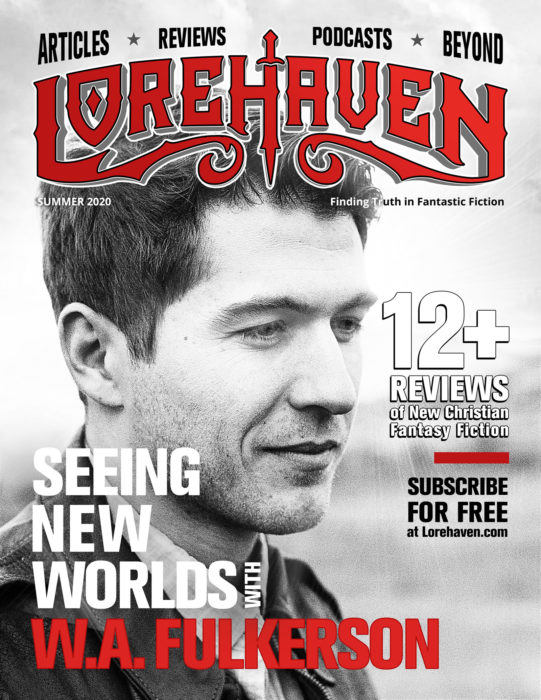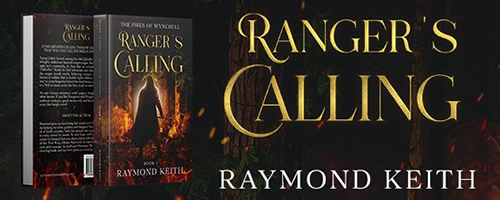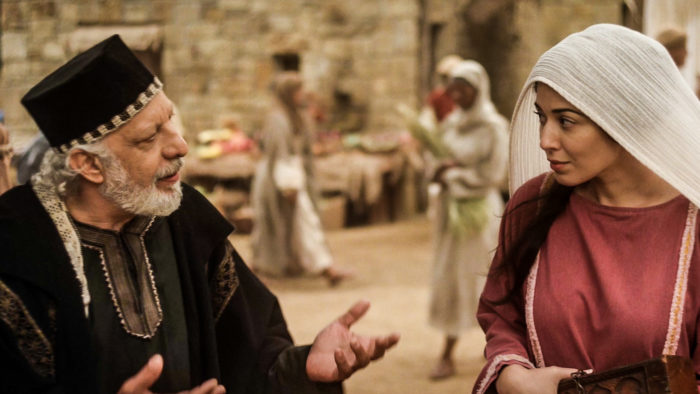28. How Should Christians Discern ‘The Chosen’ and Other Biblical Fiction?
Podcast: Play in new window | Download (Duration: 1:10:30 — 65.9MB) | Embed
Where did Jesus’s apostles come from? What was Peter doing, or Matthew, before the Savior arrived on Earth and called them to leave their jobs and follow him? Moreover, how much can Christians ask these kinds of questions—or even create movies, or a whole streaming drama series, to explore this?
That’s what we explore today, especially about the fantastical biblical drama series The Chosen.
Episode sponsor: Nathan Lumbatis with Daniel and the Serpent’s Abyss
- Nathan Lumbatis wrote Daniel and the Serpent’s Abyss.
- It’s book 3 in his Sons and Daughters fantasy series.
- Learn more from Dove Christian Publishers, or shop the book at Amazon.
- Nathan Lumbatis and his series were recently featured on the SpecFaith blog.
Six months after returning from their adventures in Daniel and the Triune Quest, Daniel, Ben, and Seren eagerly await their mission to save Raylin and acquire the last Weapon of Power: the Abyssal Staff. Daniel can’t believe his luck when Gabriela shows up and declares she will guide them to the British Isles, where Raylin has been haunting ancient ruins in her frenetic search for more spiritual power.
When the group is transported to Ireland, however, everything goes wrong.
Raylin, driven mad by the possessing power of the Voidblade, is as powerful as several demons put together and impervious to their attacks. Seren, desperate to save her sister, impulsively starts an explosive battle to bind her—a decision that turns the entire quest on its head and drives Daniel to a point of desperation he never anticipated. Through it all, the Three are noticeably absent and quiet, not answering prayers or sending aid.
What’s worse, Gabriela seems distant and preoccupied. So much for Daniel’s hopes for improving their relationship. . . .
Daniel and the Serpent’s Abyss is a young adult, Christian fantasy novel exploring forgiveness, faith, and the empowering role of the Holy Spirit in the believer’s life. It is the third in the Sons and Daughters series, which includes Daniel and the Sun Sword and Daniel and the Triune Quest.
1. What is The Chosen and how can you watch the series?
- The Chosen is a biblical fiction drama, with one season out so far.
- It follows the mission of Jesus through the eyes of his followers.
- The series is funded by supporters who “pay forward” so new fans can watch.
- Creators plan to film season 2 this fall and debut it around Easter 2021.
- You can find it at thechosen.tv, on VidAngel, and sometimes on YouTube.
- The Chosen has gained quite a fan following, with FAQs, fan art, and even fanfiction.
https://www.youtube.com/watch?v=craeyJdrCsE
https://www.youtube.com/watch?v=yzbavpKCZyg
2. What is biblical fiction and how is this unique?
Let’s start by accepting what biblical fiction is not meant to be.
- It’s not a replacement for Scripture.
- It’s not a sermon or textbook about Scripture.
- It’s not an exact, verse-by-verse re-enactment of Scripture.
- It’s not only focused on historical figures like Jesus, Mary, or Paul.
Instead, let’s understand and accept what biblical fiction is meant to be.
- It is set in ancient times as described by the Bible.
- It often involves historical people that Scripture describes.
- It often explores plotlines and specific events we read in Scripture.
- It usually adds situations, people, or events we don’t read in Scripture.
- It sometimes retells biblical stories in varying orders or with details changed.
Examples from The Chosen:
- Mary Magdalene’s expanded origin story
- Peter’s money issues and personality expansion.
- Matthew being a person on the autism spectrum.
- Jesus meeting and teaching little children early in his ministry.
 Quote from Cap Stewart in the summer 2020 Lorehaven issue:
Quote from Cap Stewart in the summer 2020 Lorehaven issue:
Make no mistake, The Chosen is historical fiction, imagining what may have happened alongside the gospel narratives. As a work of historical fiction, the show is similar to other cinematic Bible stories embraced by the Christian community over the years, including The Passion of the Christ (2004), The Ten Commandments (1956), Risen (2016), The Prince of Egypt (1998), and The Young Messiah (2016). All of these films embellished their biblical source material for dramatic efficacy.
The Chosen’s use of artistic license always exalts, not dishonors, the Biblical narrative. Its fictional details are healthy speculation and not subversion.
3. Is The Chosen “inspired”?
- Many The Chosen fans are often overcome by the show’s creative power.
- The show is genuinely emotionally powerful, and regards Scripture highly.
- It’s brought together many types of Christians, including Protestants and Catholics.
- However, those powerful feelings feel way more spiritual to some fans.
- Some fans have only one kind of “spiritual” language to describe their response.
- But let’s be careful how we use spiritual-sounding words like “inspired.”
- When we say we “feel inspired,” this is not like the Bible’s inspiration.
- With the Bible, people were directly influenced by God to arrange words.
- When people enjoy God’s gift of imagination, this is normal, not miraculous.
- God gives us himself and his gifts, like creativity, to help make us happy.
- God’s blessings move us to happiness according to his written word.
- Beware our own runaway imaginations! Only Jesus can fulfill these longings.
- Let’s praise God for these talented creators’ gifts, and pray for them!
Fantastic fans
Send your feedback by emailing us (at the address in the episode), or with the form below.
David writes:
Hi Stephen and Zack,
Just caught up on episode 13/14 about the new heavens and new earth and it’s cool to speculate that there will be challenges – not sin, not laborious toil, but real challenges to overcome. Is there a series which imagines these “Adventures of the New Earth”? Like that famous utopian painter you like to make fun of sometimes, but stories. I think they’d be great at helping us hope in God’s promises more, and soldier on and fight the good fight positively.
Thanks for all you do and the Christian camaraderie you inspire!
Brian writes:
Hi guys,
Just listened to your episodes on Narnia. I really appreciated your point of view.
I especially appreciated how you tackled the whole idea of Narnia as allegory. I remember thinking that it was allegorical in Junior high and having arguments with adults to that effect. After all, how could they not see the allegory!?!? But, as I grew up, one of the phrases you quoted in the first episode came to the forefront. “All truth is God’s truth”. The reason Narnia seems allegorical is because what is true in our world is true in other worlds because of God’s presence in those worlds. Why does Aslan seem allegorical to Jesus? Because the truth is no matter what realm he is in, Jesus is the High King to whom all bow a knee, who was there at the creation of the world, and is willing to die to bring salvation. Why are Lucy and Susan like Mary and Martha? Because the truth is people are like Mary and Martha too. It took me years to discover this truth. Thanks for helping your listeners find it a little faster.
Next on Fantastical Truth
What if you didn’t know you had killed your own father? Or what if you had escaped from a mysterious mountain but had to leave your brother behind? Novelist Shawn Smucker, author of this summer’s new novel These Nameless Things, joins us to explore the edge of over there and of magical realism.


































Share your thoughts about this podcast episode